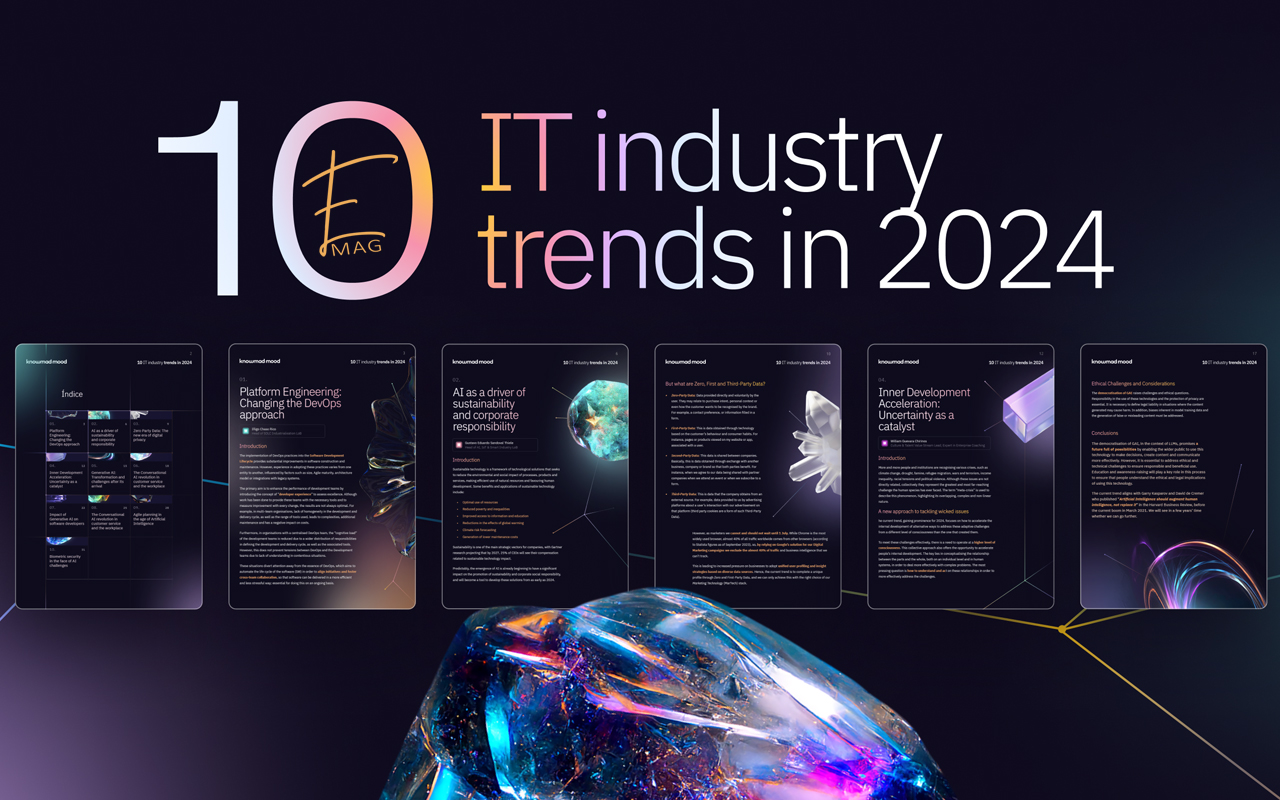Technology today is evolving at a rapid pace, enabling faster change and progress, causing an acceleration of the rate of change. However, it is not only technology trends and emerging technologies that are evolving, a lot more has changed, making IT professionals realize that their role will not stay the same in the contactless world tomorrow. An IT professional in 2024 will constantly be learning, unlearning, and relearning (out of necessity if not desire).
What does this mean for you in the context of the highest-paying jobs in India? It means staying current with emerging technologies and the latest technology trends. It means keeping your eyes on the future to know which skills you’ll need to know to secure a safe job tomorrow and even learn how to get there. Here are the top 24 emerging technology trends you should watch for and attempt in 2024, and possibly secure one of the highest-paying tech jobs that these new technology trends will create. You are starting the list of new tech trends with the talk of the town, gen-AI!
1. AI-Generated Content
Artificial intelligence can generate high-quality, creative content, including text, images, videos, and music. This technology uses algorithms like GPT (Generative Pre-trained Transformer) and DALL-E to understand and produce content that resonates with human preferences. The vast applications range from generating articles, creating educational materials, and developing marketing campaigns to composing music and producing realistic visuals. This speeds up content creation and reduces costs, and democratizes access to creative tools, enabling small businesses and individuals to create content at scale.
2. Quantum Computing
Quantum computers leverage the properties of quantum mechanics to process information exponentially faster than classical computers for specific tasks. This year, we’re seeing quantum computing being applied in areas such as cryptography, where it can potentially crack currently considered secure codes, and in drug discovery, speeding up the process by accurately simulating molecular structures. The technology is still nascent but poised to revolutionize industries by solving complex problems intractable for traditional computers.
3. 5G Expansion
The fifth generation of mobile networks, 5G, promises significantly faster data download and upload speeds, wider coverage, and more stable connections. The expansion of 5G is facilitating transformative technologies like IoT, augmented reality, and autonomous vehicles by providing the high-speed, low-latency connections they require. This technology is crucial for enabling real-time communications and processing large amounts of data with minimal delay, thereby supporting a new wave of technological innovation.
4. Virtual Reality (VR) 2.0
Enhanced VR technologies are offering more immersive and realistic experiences. With improvements in display resolutions, motion tracking, and interactive elements, VR is becoming increasingly prevalent in gaming, training, and therapeutic contexts. New VR systems are also becoming more user-friendly, with lighter headsets and longer battery life, which could lead to broader consumer adoption and integration into daily life.
5. Augmented Reality (AR) in Retail
AR technology is transforming the retail industry by allowing consumers to visualize products in a real-world context through their devices. This trend is evident in applications that let users try on clothes virtually or see how furniture would look in their homes before purchasing. These interactive experiences enhance customer satisfaction, increase sales, and reduce return rates.
6. Internet of Things (IoT) in Smart Cities
IoT technology in smart cities involves the integration of various sensors and devices that collect data to manage assets, resources, and services efficiently. This includes monitoring traffic and public transport to reduce congestion, using smart grids to optimize energy use, and implementing connected systems for public safety and emergency services. As cities continue to grow, IoT helps manage complexities and improve the living conditions of residents.
7. Biotechnology in Agriculture
Advances in biotechnology are revolutionizing agriculture by enabling the development of crops with enhanced traits, such as increased resistance to pests and diseases, better nutritional profiles, and higher yields. Techniques like CRISPR gene editing are used to create crops that can withstand environmental stresses such as drought and salinity, which is crucial in adapting to climate change and securing food supply.
8. Autonomous Vehicles
Autonomous vehicles use AI, sensors, and machine learning to navigate and operate without human intervention. While fully autonomous cars are still under development, there’s significant progress in integrating levels of autonomy into public transportation and freight logistics, which could reduce accidents, improve traffic management, and decrease emissions.
9. Blockchain Beyond Crypto
Initially developed for Bitcoin, blockchain technology is finding new applications beyond cryptocurrency. Industries are adopting blockchain for its ability to provide transparency, enhance security, and reduce fraud. Uses include tracking the provenance of goods in supply chains, providing tamper-proof voting systems, and managing secure medical records.
10. Edge Computing
Edge computing involves processing data near the source of data generation rather than relying on a central data center. This is particularly important for applications requiring real-time processing and decision-making without the latency that cloud computing can entail. Applications include autonomous vehicles, industrial IoT, and local data processing in remote locations.





